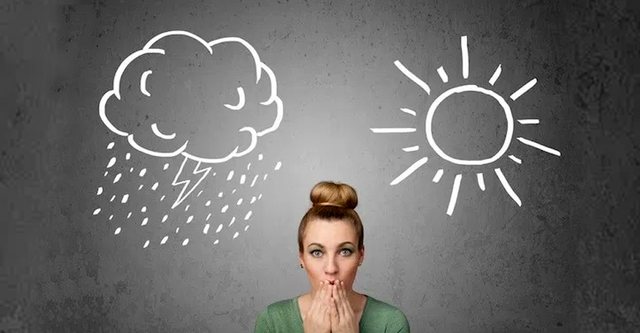
By the end of summer, winter has officially hit. Although outside, temperatures are not yet ice cold, days have become shorter, there is less light, and mood is more easily depressed. This happens when we are suffering from meteoropathy or an emotional state closely linked to weather and climate change.
Meteoropathy: symptoms
If, during this period, you have noticed that you are more frustrated, tired, apathetic or sensitive or if you are experiencing other types of physical symptoms such as weight gain and loss of interest in various hobbies or headaches, then you may suffer from meteoropathy. The latter is a form of depression that affects late autumn and can last as long as the following spring. Mood changes, which coincide with the changing weather, tend to affect young people as well.

Of course, dark skies and cooler temperatures are associated with a decrease in mood, not to mention the fact that in winter we get less vitamin D, which is involved in improving our mood.
It is said, in fact, that vitamin D regulates our levels of serotonin or the hormone that maintains a sense of calm and balance.
What's more, as the hours of darkness get longer, the body also tends to produce more melatonin, a basic sleep aid, but that can make you feel tired more often than in summer.

How to afford it?
There are several things we can do to counter the symptoms of meteoropathy. For example, you can increase your mood, such as walking for 30 minutes or a 15-minute run.
Even regular sleep can help you feel better. To rest well, stop consulting your iPhone before going to bed or working on the computer and avoid eating too much protein and meal and eating caffeine in the evening. Moreover, socialization is also very important against the effects of seasonal depression.

Since late autumn, due to the cold and uncomfortable days, people tend to stay home alone on weekends. Instead, try organizing evenings, even at noon, with friends to drink hot chocolate together or spend an evening at the theater or cinema.





